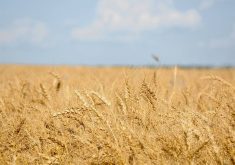(Resource News International) — Feed barley prices in Western Canada will likely see more downside, despite expectations for a smaller Canadian barley crop.
That’s according to an Alberta feed grains broker who expected imports of cheaper U.S. corn and distillers dried grains to continue to weigh on prices.
A seasonal lack of demand was weighing on barley prices for the time being, said Michael Berscheid of Ag-Value Brokers in Calgary. Bids in Lethbridge were currently in the $160-$170 per tonne area.
Read Also

ICE Canada Weekly: U.S. biodiesel mandate will be a boon for canola
Canola is poised for more gains as the trade awaits the Trump administration’s decision on the latest biodiesel mandate, said Jamie Wilton, broker with RJ O’Brien in Winnipeg.
Feedlots were not bringing in many cattle right now and were only buying barley on a hand-to-mouth basis in anticipation of the harvest, he said.
Imports of distillers dried grains with solubles (DDGS), a byproduct of ethanol production in the U.S., have also been cutting into the demand for barley.
Berscheid said DDGS trade at a sizeable discount and feedlots were using them as 20-30 per cent of their rations. The DDGS market was weak itself, he said, which should keep barley under pressure.
Also, if the U.S. corn crop comes in as large as expected, Berscheid expected Chicago Board of Trade (CBOT) corn futures would drop below US$3 per bushel. At prices that low, he expected it would be very easy to bring up U.S. corn, further displacing barley.
Another potentially bearish factor for barley values was the lateness of the crops in Alberta this year, according to Berscheid. More wheat could grade as feed, while other crops may end up as green feed, he said.
Reduced livestock numbers should also continue to weigh on barley prices, according to the Berscheid.
One thing to watch, he added, will be the spread in barley prices between the main Lethbridge feeding area and other locations.
Prices in Edmonton may not be at such a discount to the Lethbridge bids this year, he said, given the poorer crops north of Calgary and the fact that it will be more expensive to bring U.S. corn and DDGS farther north.















